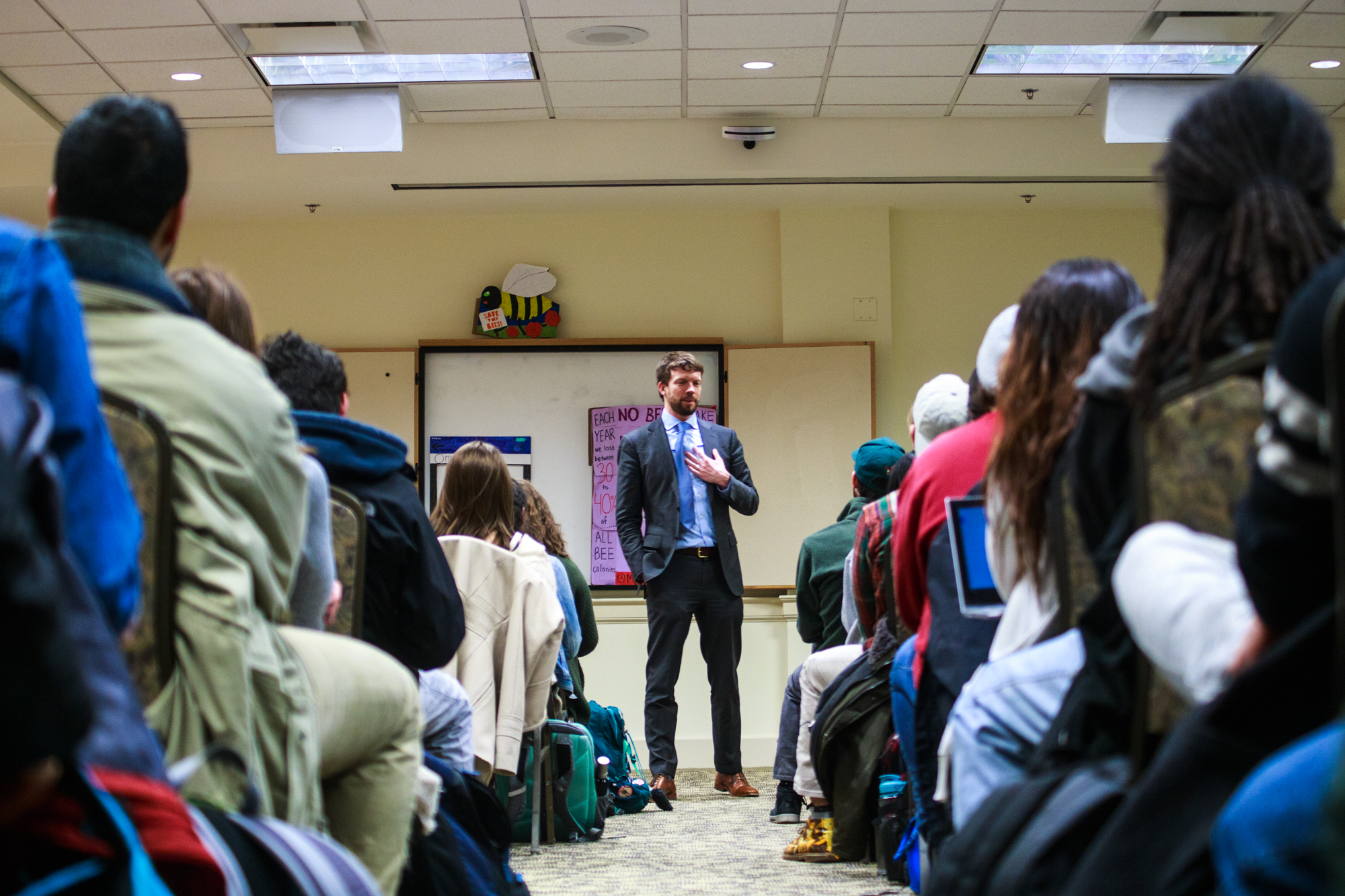When MaryPIRG, the university’s branch chapter of the Public Interest Research Group network, needed a guest speaker for its kickoff meeting, it turned to the mayor, who has some experience with the national organization.
College Park Mayor Patrick Wojahn, who addressed the group Wednesday, worked with PIRG branches in Wisconsin. He credited the experience as vital to his political career.
“I was a campus organizer,” Wojahn said. “I worked with the PIRGs in Wisconsin in the late ’90s. I really attribute the PIRGs to giving me the background I need in running campaigns and doing organizing and all the other stuff I needed to do.”
About 100 students gathered in the Juan Ramon Jimenez Room in Stamp Student Union for the MaryPIRG spring semester kickoff event. During the meeting, they went over the organization’s major initiatives for the semester.
Last semester, the collective national network successfully encouraged McDonald’s and Subway to commit to stop using antibiotics in their food supplies.
“That was a huge victory for us,” said chapter president Tom Klotz, a senior government and politics major. “But I think on a chapter, logistical basis, [the biggest accomplishment] is that we’ve grown. That, I think, was the biggest change that we’ve made — is continuing to get more people involved.”
This semester, the group plans to continue working on initiatives including homelessness solutions, hunger advocacy and textbook affordability. They’re also focusing heavily on voter registration, given the presidential elections in November.
Aaron Aber, a senior environmental science and policy major who was heavily involved with the group’s push for a fracking moratorium in Western Maryland his freshman year, is now leading an effort to increase the state’s reliance on solar energy.
“Being from Pennsylvania, I saw how dangerous fracking can be to the environment,” Aber said. “One of the reasons that I stuck with PIRG is I saw them working on these clean energy initiatives and I thought it was important to make sure that was being advocated for.”
Aber explained the group’s goal is to encourage Gov. Larry Hogan to increase the amount of solar energy use in this state from 2 percent of the renewable portfolio standard to 10 percent by 2020.
The group will be gathering petitions from students and endorsements from professors and community leaders — they hope for 800 in total — and delivering them to Hogan’s office in Annapolis at the end of the semester.
Morgan Folger, a senior English and environmental science and policy major, is leading MaryPIRG’s “Save the Bees” campaign — an effort to prevent bees from dying. Greenpeace estimates the commercial honey bee population has declined 40 percent since 2006.
The first priority, Folger said, is raising awareness for the issue.
“Tomorrow, we have our ‘save the bees’ Valentine’s Day visibility event, Bee My Valentine,” she said. “We’re going to be outside of McKeldin in the afternoon getting photo-petitions to send to the [Environmental Protection Agency].”
The semester goal is 14,000 petitions, Folger said, one for each of the 14,000 bee colonies in this state. The group is hoping to convince the EPA to ban neonicotinoids.
Wojahn praised PIRGs, describing his early experience and training with the organization as instrumental to his later career.
“If you feel a passion about any cause, [PIRG] gives you the skills and the training you need to make a difference,” Wojahn said. “I don’t think I would have been on City Council or been mayor now if it weren’t for my training with the PIRGs.”



